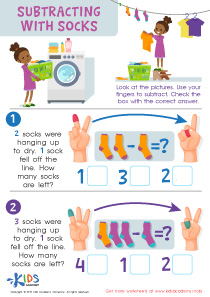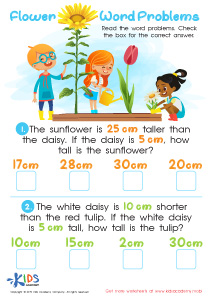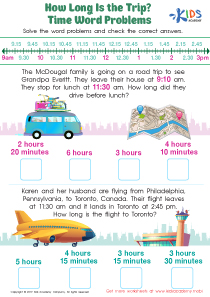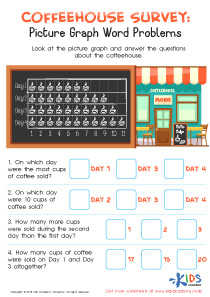Easy Two-step Word Problems Worksheets for Ages 4-6
5 filtered results
-
From - To
Introduce your young learners to the fun of problem-solving with our Easy Two-step Word Problems worksheets! Tailored specifically for children aged 4-6 years, these engaging learning worksheets are designed to build foundational math skills in an enjoyable and interactive way. Each sheet guides children through simple, two-step problems that help develop critical thinking and basic arithmetic abilities. With clear instructions and colorful illustrations, these worksheets make learning accessible and exciting. Perfect for both classroom and home use, our Learning worksheets are your child's first steps towards mastering math concepts effortlessly. Unlock the joy of learning with each page!
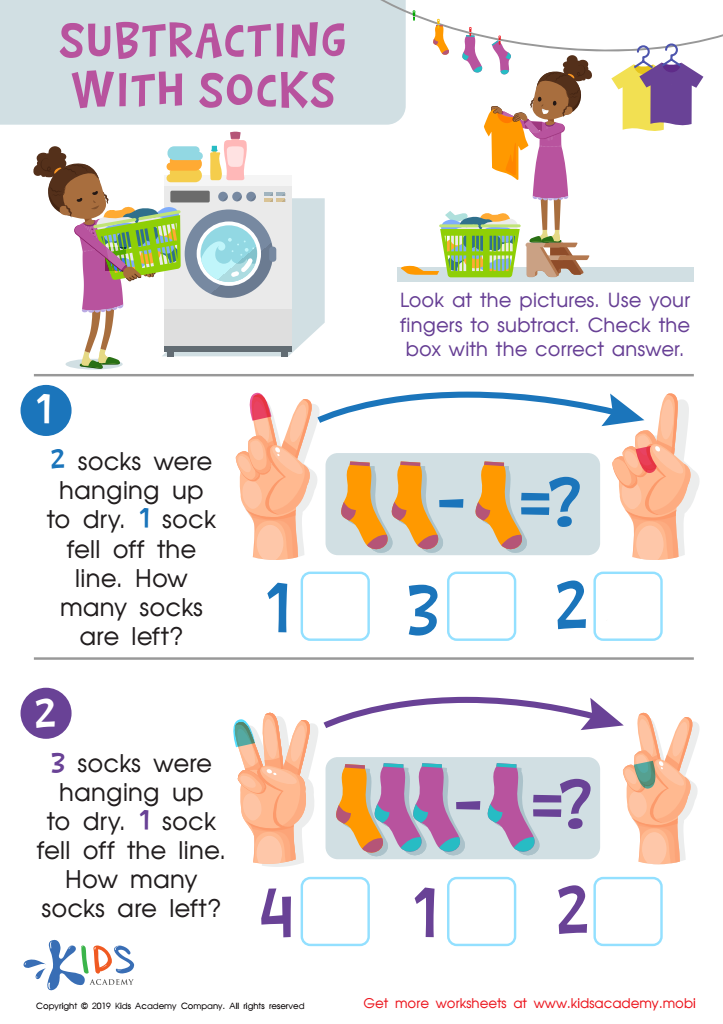

Subtracting Socks Worksheet


Counting Seedlings Worksheet
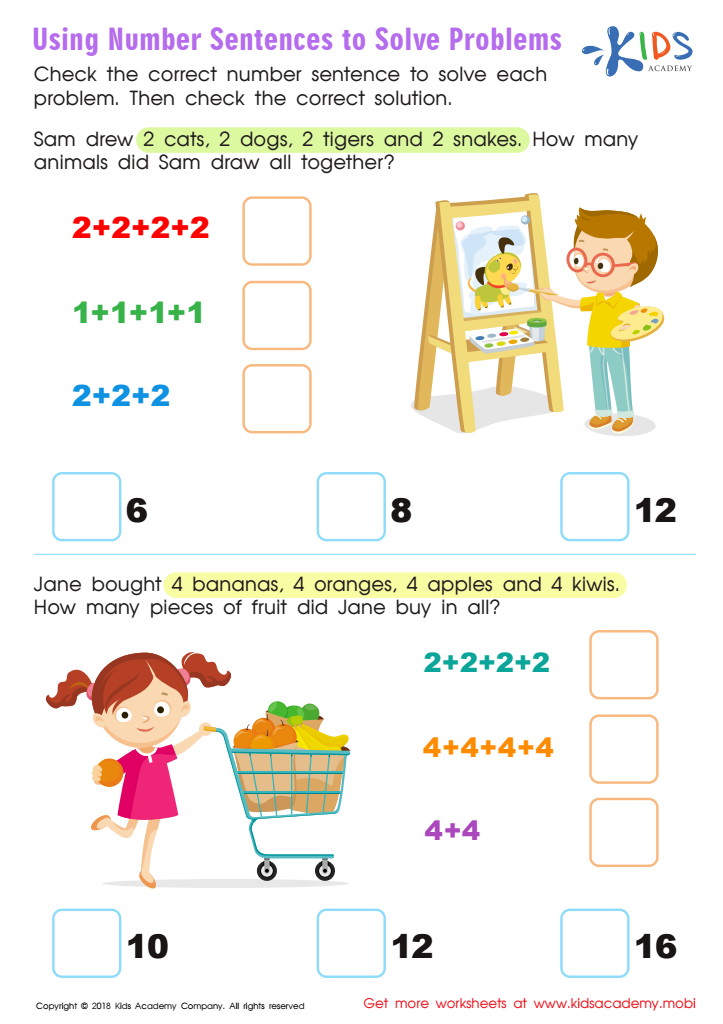

Using Number Sentences to Solve Problems Worksheet
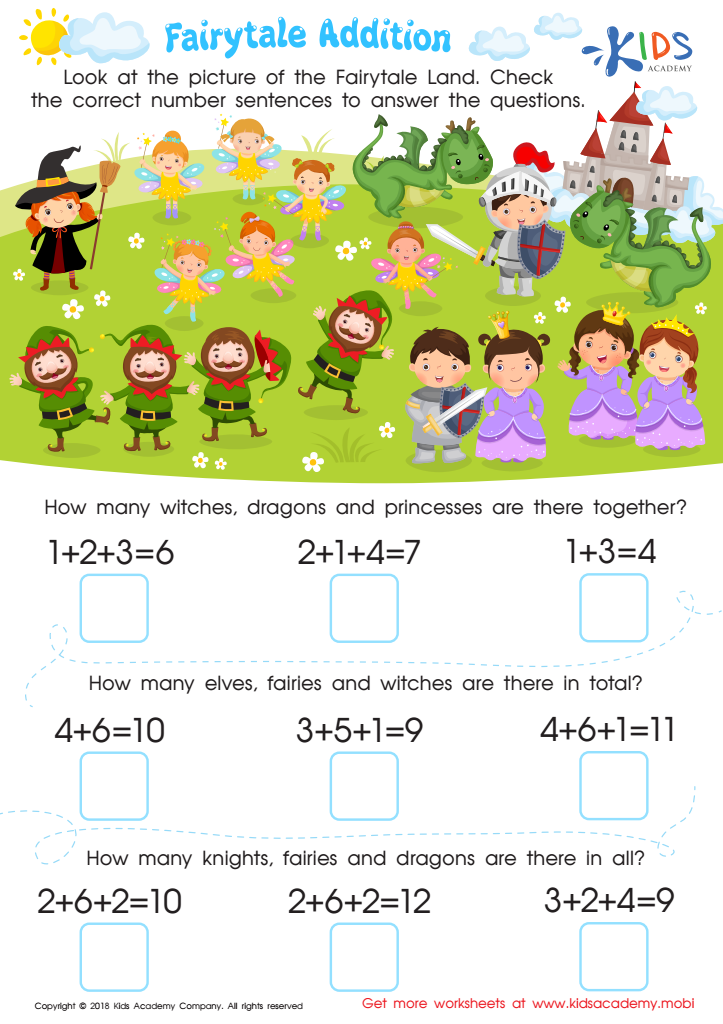

Fairytale Addition Worksheet
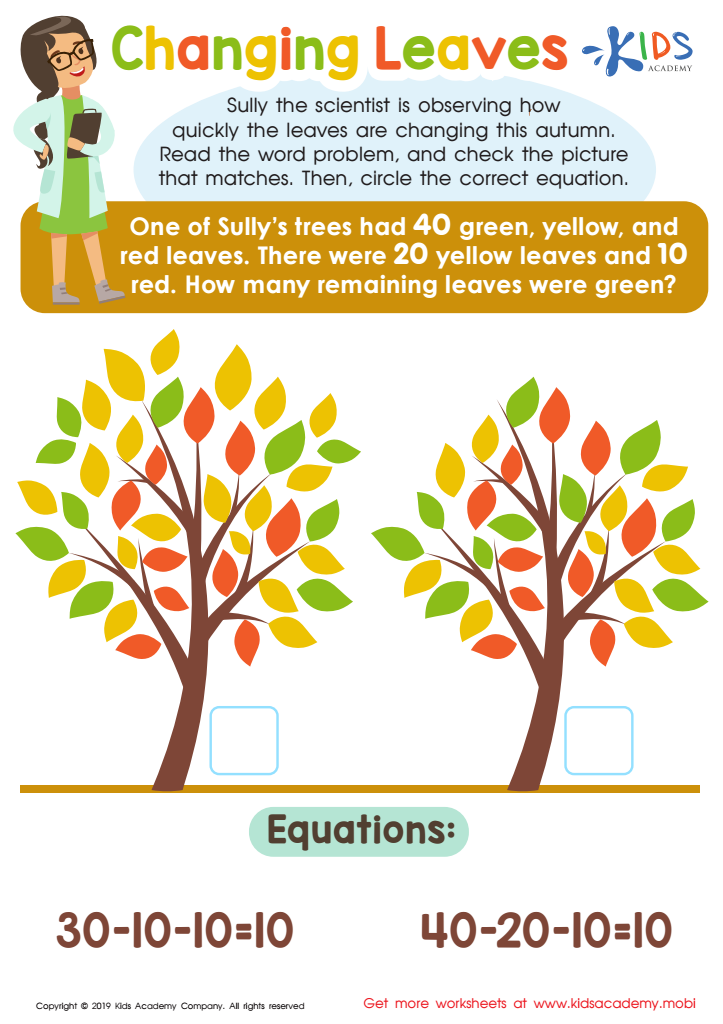

Changing Leaves Worksheet
Easy worksheets on Two-step Word Problems are an invaluable resource for young children aged 4-6 years. These learning printables are specifically engineered to enhance cognitive skills while making learning fun and engaging. These worksheets are not just instructional tools; they represent a bridge between theoretical knowledge and real-life application, paving the way for a deeper understanding of mathematics and problem-solving skills in young learners.
In the early years of schooling, children are just beginning to form their foundational understanding of numbers and arithmetic. Easy worksheets on Two-step Word Problems help in solidifying these basics by introducing children to the concept of following sequential steps to arrive at a solution. This not only aids in their mathematical acuity but also enhances their ability to follow instructions and process information in a logical order.
The use of Learning printables like these is particularly useful because they can be tailored to the learning pace and style of each child. For children aged 4-6 years, learning is as much about the process as it is about the outcome. With colorful, engaging, and age-appropriate content, these worksheets capture the interest of young minds, encouraging them to explore problems without the pressure of a classroom setting. This exploratory approach helps to instill a love for learning and problem-solving from an early age.
Furthermore, Two-step Word Problems require children to think critically and apply their knowledge practically. The first step usually involves understanding the problem and identifying what is being asked. The second step often involves performing an operation—be it addition, subtraction, or a combination of both—to find the solution. This dual-step process is crucial in helping children develop their analytical and reasoning skills. Moreover, as these problems often mimic real-life situations, they help children in understanding how mathematics is not just limited to the classroom but is a vital part of everyday life.
Incorporating Learning printables into early education also promotes independence and self-confidence in children. As they work through these problems, they learn to trust their own reasoning and capabilities, which is essential for their overall personal development. Additionally, these worksheets provide immediate feedback, which is vital for young learners as it helps them understand and correct their mistakes on their own.
Parents and educators alike find easy worksheets on Two-step Word Problems particularly beneficial because they serve as a versatile educational tool. They can be used in a variety of settings - from classrooms to homeschooling to just casual practice at home. They are also an excellent resource for parents who wish to be more involved in their child's early education, providing a simple yet effective platform for interaction. Working together on these worksheets allows parents to observe their child’s problem-solving process firsthand, offering insights into the child’s learning style and areas that might require additional support.
The design of these learning printables often incorporates elements that relate directly to children’s experiences, such as toys, animals, and food, making the problems relatable and interesting. This relevance boosts engagement and makes learning a natural and enjoyable process. It’s a way for children to connect their learning with the world around them, which enhances retention and comprehension.
Moreover, the flexibility of these worksheets makes them adaptable to various learning environments. For educators in a classroom, they can serve as a great tool for group activities, fostering teamwork and collaborative problem-solving skills among students. This peer interaction further enriches the learning experience, as children learn not just from the worksheet but also from each other.
Additionally, Two-step Word Problems are beneficial for developing persistence and patience. Since these problems require a step-by-step approach to solve, children learn the value of perseverance as they must navigate through multiple stages to reach an answer. This is a crucial life skill that goes beyond academic boundaries, preparing children for complex tasks and challenges in the future.
To sum it up, easy worksheets on Two-step Word Problems are more than just learning materials; they are a comprehensive tool that enhances intellectual and personal growth. By incorporating fun, challenge, and practical application into the learning process, these Learning printables are instrumental in building a robust foundation in mathematics and critical thinking for young learners. This approach not only nurtures young minds but also equips them with the skills necessary to navigate both their academic journey and everyday life challenges effectively.
 Assign to My Students
Assign to My Students






